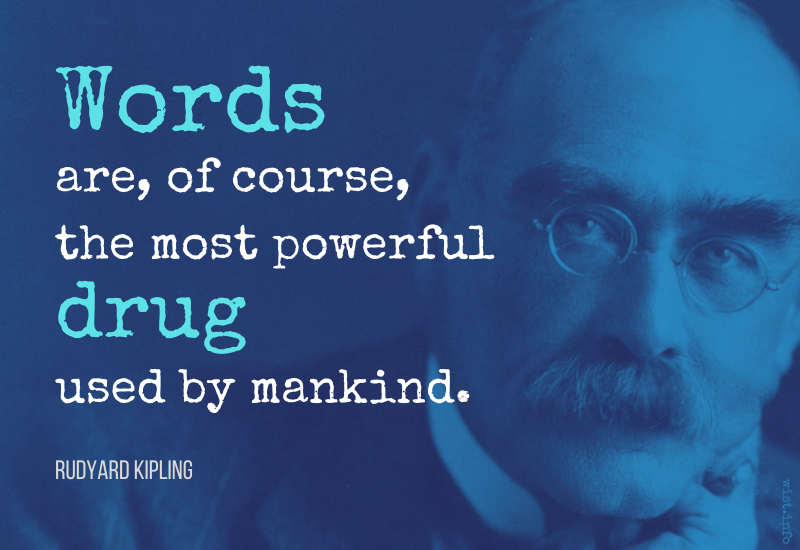It is never too late — in fiction or in life — to revise.
Quotations about:
writing
Note not all quotations have been tagged, so Search may find additional quotes on this topic.
I was stunned to realize that it was possible to make up things that had never happened but which felt as if they’d happened. The church had tried to convince me that there was only truth and falsehood and nothing in between, but the nuns and priests were wrong; the story in front of me was false, but in the reading of it my heart accepted it as true. I turned over the book to reveal the writer’s name. I hadn’t previously paid much attention to the names on book covers, but by god somebody sat down and wrote that story. Wouldn’t it be amazing if I could do that? I thought. And with an electric thrill I felt a key turn deep inside me.
BREVILLE: And what do you want them to say about the writer Rod Serling a hundred years from now?
SERLING: I don’t care. I just want them to remember me a hundred years from now. I don’t care that they’re not able to quote any single line that I’ve written. But just that they can say, “Oh, he was a writer.” That’s sufficiently an honored position for me.
BREVILLE: Then that’s what it all boils down to really?
SERLING: I guess we all have a little vaunting itch for immortality, I guess that must be it.
Rod Serling (1924-1975) American screenwriter, playwright, television producer, narrator
“Rod Serling: The Facts of Life,” interview by Linda Brevelle (4 Mar 1975)
(Source)
Serling's last interview. He died less than four months later.
Fantasy is my favorite genre for reading and writing. We have more options than anyone else, and the best props and special effects. That means if you want to write a fantasy story with Norse gods, sentient robots, and telepathic dinosaurs, you can do just that. Want to throw in a vampire and a lesbian unicorn while you’re at it? Go ahead. Nothing’s off limits. But the endless possibility of the genre is a trap. It’s easy to get distracted by the glittering props available to you and forget what you’re supposed to be doing: telling a good story. Don’t get me wrong, magic is cool. But a nervous mother singing to her child at night while something moves quietly through the dark outside her house? That’s a story. Handled properly, it’s more dramatic than any apocalypse or goblin army could ever be.
Patrick Rothfuss (b. 1973) American author
“Exploring the Edge of the Fantasy Map,” interview by Paul Goat Allen, Publisher’s Weekly (31 Jan 2011)
(Source)
I don’t enjoy any of the process of writing. I enjoy it when it goes on if it zings and it has great warmth and import and it’s successful. Yeah, that’s when I enjoy it. But during the desperate, tough time of creating it, there’s not much I enjoy about it. It tires me and lays me out, which is sort of the way I feel now. Tired.
Rod Serling (1924-1975) American screenwriter, playwright, television producer, narrator
“Rod Serling: The Facts of Life,” interview by Linda Brevelle (4 Mar 1975)
(Source)
The interview was held less than four months before his death from cancer.
It is true that the poet does not directly address his neighbors; but he does address a great congress of persons who dwell at the back of his mind, a congress of all those who have taught him and whom he has admired; that constitute his ideal audience and his better self. To this congress the poet speaks not of peculiar and personal things, but of what in himself is most common, most anonymous, most fundamental, most true of all men. And he speaks not in private grunts and mutterings but in the public language of the dictionary, of literary tradition, and of the street. Writing poetry is talking to oneself; yet it is a mode of talking to oneself in which the self disappears; and the product’s something that, though it may not be for everybody, is about everybody.
If an epigram takes up a page, you skip it:
Art counts for nothing, you prefer the snippet.
The markets have been ransacked for you, reader,
Rich fare — and you want canapes instead!
I’m not concerned with the fastidious feeder:
Give me the man who likes his basic bread.[Consumpta est uno si lemmate pagina, transis,
Et breviora tibi, non meliora placent.
Dives et ex omni posita est instructa macello
Cena tibi, sed te mattea sola iuvat.
Non opus est nobis nimium lectore guloso;
Hunc volo, non fiat qui sine pane satur.]Martial (AD c.39-c.103) Spanish Roman poet, satirist, epigrammatist [Marcus Valerius Martialis]
Epigrams [Epigrammata], Book 10, epigram 59 (10.59) (AD 95, 98 ed.) [tr. Michie (1972)]
(Source)
(Source (Latin)). Alternate translations:
If one sole epigram takes up a page,
You turn it o'er, and will not there engage:
Consulting not its worth, but your dear ease;
And not what's good, but what is short, does please.
I serve a feast with all the richest fare
The market yields; for tarts you only care.
My books not fram'd such liq'rish guests to treat,
But such as relish bread, and solid meat.
[tr. Killigrew (1695)]
If one small theme exhaust a page,
'Though fli'st upon the wings of rage,
To fewer words, tho' not more fine;
And met'st my matter, by the line.
A rich repast, from ev'ry stall,
We see upon thy palate pall.
We fear a sickly appetite,
Where tid-bits onely can delight.
Out oh! may I receive no guest
Who picks the tiny for the best.
His taste wills tand him more to sted,
Who makes no meal up without bread.
[tr. Elphinston (1782), Book 3, ep. 11]
If one subject occupies a whole page, you pass over it; short epigrams, rather than good ones, seem to please you. A rich repast, consisting of every species of dish, is set before you, out only dainty bits gratify your taste. I do not covet a reader with such an over-nice palate; I want one that is not content to make a meal without bread.
[tr. Bohn's Classical (1859)]
You have no patience for the page-long skit,
Your taste is ruled by brevity, not wit.
Ransack the mart, make you a banquet rare,
You'll pick the titbit from the bill of fare;
I have no use for suchy a dainty guest;
Who ekes his dinner out with bread is best.
[tr. Street (1907)]
If a column is taken up by a single subject, you skip it, and the shorter epigrams please you, not the better. A meal, rich and furnished from every market, has been placed before you, but only a dainty attracts you. I have no need of a reader too nice: I want him who is not satisfied without bread.
[tr. Ker (1919)]
You like the shortest poems, not the best,
Tis those you always read -- and skip the rest;
I spread a varied banquet for your taste,
You take made dishes and the rest you waste.
And wrong your appetite, for truth to tell
A satisfying meal needs bread as well.
[tr. Pott & Wright (1921)]
You've read one epigram; the rest you skip;
Shortness, not sweetness suits your censorship.
A whole rich mart's outspread before your feet;
And yet a small tit-bit's your only treat.
I want no gluttonous reader, no, indeed!
Still I prefer one who on bread can feed.
[tr. Francis & Tatum (1924) ep. 554]
If a poem of mine fills up a page,
You pass it by. You'd rather read
The shorter, not the better ones.
A fear to answer every need,
Rich and varied, and supplied
With many viands widely drawn
From every shop is offered you,
And yet you glance at it with scorn,
The dainties only pleasing you.
Fussy reader, away! Instead
Give me a guest who with his meal
Must have some homely peasant bread.
[tr. Marcellino (1968)]
If a page is used up with a single title, you pass it by; you like the shorter items, not the better ones. A sumptuous dinner furnished from every market is served you, but you care only for a tidbit. I don't want a reader with too fine a palate; give me the man who doesn't feel full without bread.
[tr. Shackleton Bailey (1993)]
A whole damned page crammed with verse -- so you yawn!
If a poem's too long you move swiftly on;
"Shorter the better!" is your golden rule.
But markets are scoured to make the tongue drool;
A groaning board's set -- rich sauces for days --
And yet, dear reader, you want canapés?
But I don't hunger for diners so prude:
Hail meat and potatoes -- screw finger food!
[tr. Schmidgall (2001)]
If just one poem fills a page, you skip it.
The short ones please you, not the best. I serve
a lavish dinner culled from every market,
but you are only pleased with the hors d'oeuvre.
A finicky reader's not for me; instead,
I want one who's not full without some bread.
[tr. McLean (2014)]
I write poetry, prose, and everything I do, I do on the principle of Russian borscht. You can throw everything into it — beets, carrots, cabbage, onions, everything you want. What’s important is the result, the taste of the borscht.
Yevgeny Yevtushenko (1933-2017) Russian poet, writer, film director, academic [Евге́ний Евтуше́нко, Evgenij Evtušenko]
“Yevtushenko: A Soviet Poet Turns to Movie Making,” New York Times (2 Feb 1986)
(Source)
Composition is a discipline; it forces us to think. If you want to “get in touch with your feelings,” fine — talk to yourself, we all do. But if you want to communicate with another thinking human being, get in touch with your thoughts. Put them in order; give them a purpose; use them to persuade, to instruct, to discover, to seduce.
William Safire (1929-2009) American author, columnist, journalist, speechwriter
Commencement Address, Syracuse University (13 May 1978)
(Source)
Reprinted in On Language, "Commencement Address" (1980).
I, for example, do not like poems that resemble hay compressed into a geometrically perfect cube. I like it when the hay, unkempt, uncombed, with dry berries mixed in it, thrown together gaily and freely, bounces along atop some truck—and more, if there are some lovely and healthy lasses atop the hay—and better yet if the branches catch at the hay, and some of it tumbles to the road.
Yevgeny Yevtushenko (1933-2017) Russian poet, writer, film director, academic [Евге́ний Евтуше́нко, Evgenij Evtušenko]
“Yevtushenko: A Soviet Poet Turns to Movie Making,” New York Times (2 Feb 1986)
(Source)
In the end, I saw Superman not as a superhero or even a science fiction character, but as a story of Everyman. We’re all Superman in our own adventures. We have our own Fortresses of Solitude we retreat to, with our own special collections of valued stuff, our own super-pets, our own Bottle Cities that we feel guilty for neglecting. We have our own peers and rivals and bizarre emotional or moral tangles to deal with.
Grant Morrison (b. 1960) Scottish comic book writer and playwright
“All Star Memories: Grant Morrison on All Star Superman, Part 1,” Interview with Zack Smith, Newsarama.com (21 Oct 2008)
(Source)
The gifts and the lessons my father left me will last forever: Never take yourself too seriously, never miss a chance to laugh long and hard, speak out about political and social issues you believe in, use the written word as often as you can to make yourself and the world a better place, and love your children with all you’ve got.
Rod Serling (1924-1975) American screenwriter, playwright, television producer, narrator
Paraphrase of Rod Serling in Anne Serling, As I Knew Him: My Dad, Rod Serling, Epilogue (2013)
(Source)
When a poet is being a poet — that is, when he is writing or thinking about writing — he cannot be concerned with anything but the making of a poem. If the poem is to turn out well, the poet cannot have thought of whether it will be saleable, or of what its effect on the world should be; he cannot think of whether it will bring him honor, or advance a cause, or comfort someone in sorrow. All such considerations, whether silly or generous, would be merely intrusive; for, psychologically speaking, the end of writing is the poem itself.
This is a purely a personal bias but the desire to compel fantasy worlds to conform to the allegedly superior rules of grim reality can feel to me like a form of memetic colonialism I’ve generally found distasteful ….
Grant Morrison (b. 1960) Scottish comic book writer and playwright
“SUPERMAN and THE AUTHORITY annotations Pt 2,” blog entry (16 Feb 2022)
(Source)
The relation between the artist and reality is an oblique one, and indeed there is no good art which is not consciously oblique. If you respect the reality of the world, you know that you can approach that reality only by indirect means.
Richard Wilbur (1921-2017) American poet, literary translator
“The Bottles Become New, Too” (1953), Responses: Prose Pieces, 1953-1976 (1976)
(Source)
Originally published in Quarterly Review of Literature, Vol. 7, No. 3 (1953).
Using Superman’s greatest vulnerability against him — that he is powerless to resist how he is written — to deliberately misrepresent the intentions of his creators or portray him in a way that would best suit some other character strikes me as an oddly blinkered refusal on the part of otherwise imaginative people to even try to conceive what might go on in the mind and motivations of a fictional paragon created to do the right thing with no thought for his own safety.
Grant Morrison (b. 1960) Scottish comic book writer and playwright
“SUPERMAN and THE AUTHORITY annotations Pt 2,” blog entry (16 Feb 2022)
(Source)
The idea of compassion has become unfashionable. It’s gotten confused with sentimentality, though you English majors know the difference: sentimentality is emotion without responsibility; compassion is the recognition of shared humanity. Chalk and cheese. Sentimentality is superficial, easy listening that does nothing to expand our understanding. Compassion is quite different. Risky and exigent, it puts you inside someone else. This is one of literature’s greatest strengths
Roxana Robinson (b. 1946) American novelist and biographer
“The Writer’s Life,” Authors Guild Bulletin (Winter 2015)
(Source)
To undermine the fundamental appeal of superheroes like Superman and Supergirl by re-casting them as anti-heroes at best or outright monsters — dragging imaginary childhood paragons off their pedestals to reinforce a fairly facile point about the tendency of real world heroes to exhibit feet of clay — struck me and strikes me still as imaginatively lazy.
Grant Morrison (b. 1960) Scottish comic book writer and playwright
“SUPERMAN and THE AUTHORITY annotations Pt 2,” blog entry (16 Feb 2022)
(Source)
I think that the successful genres of a particular period are reflections of the needs and thoughts and social struggles of that time. When you see a bunch of similar projects meeting with success, you’ve found a place in the social landscape where a particular story (or moral or scenario) speaks to readers. You’ve found a place where the things that stories offer are most needed. And since the thing that stories most often offer is comfort, you’ve found someplace rich with anxiety and uncertainty. (That’s what I meant when I said to Melinda Snodgrass that genre is where fears pool.)
Daniel Abraham (b. 1969) American writer [pseud. James S. A. Corey (with Ty Franck), M. L. N. Hanover]
“100 Aspects of Genre: Learning from the Dead and the Dying,” blog entry (19 Oct 2010)
(Source)
The reason I can’t take myself seriously as a “creative artist,” Guy dear, is because I’m not one. It’s not somehow not in me to bear very patiently with my own mediocrity. If I can’t — and I can’t — be Shakespeare or Goethe, I’d rather raise good cabbages. And that is why I would not write at all, except that there is more money in writing than in cabbages, not only more money, but more freedom. […] This is why I’m not “filled with my art.” I ain’t got no art. I’ve got only a kind of craftsman’s skill, and make stories as I make biscuits or embroider underwear or wrap up packages.
Rose Wilder Lane (1886-1968) American journalist, travel writer, novelist, political theorist
Letter to Guy Moyston (25 Jun 1925)
(Source)
Quoted in William Holtz, The Ghost in the Little House: A Life of Rose Wilder Lane, ch. 9, sec. 5 (1995).
I somehow always have this idea that as soon as I can get through this work that’s piled up ahead of me, I’ll really write a beautiful thing. But I never do.
Rose Wilder Lane (1886-1968) American journalist, travel writer, novelist, political theorist
Letter to Guy Moyston (1920s)
(Source)
Quoted in William V. Holtz, The Ghost in the Little House, ch. 8, sec. 2 (1993).
All writers are born; they’re never made … I take off and write, out of a sense of desperate compulsion. I always write as if I’d gotten my X-ray back from the doctor on Monday, and I’d best check with the insurance man to see whether or not the house is free and clear.
Rod Serling (1924-1975) American screenwriter, playwright, television producer, narrator
Lecture notes, Creativity Seminar, Ithaca College (c. 1972)
(Source)
That script taught me never to write about someone who doesn’t go to the bathroom.
Rod Serling (1924-1975) American screenwriter, playwright, television producer, narrator
Comment to Mark Olshaker
(Source)
Regarding his script for The Man (1972), from the novel by Irving Wallace, portraying James Earl Jones as the first Black US president. Serling felt the final product came out with Jones too much as a symbol, not a real human being.
In Anne Serling, As I Knew Him: My Dad, Rod Serling (2013).
Kiva considered that she might be developing a thing for Fundapellonan, which on one hand would be a very not-Kiva thing to do, but on the other hand who gave a fuck if it was “not-Kiva,” because she wasn’t some fucking fictional character destined to do whatever some goddamn hack wanted her to do.
You see we make our writers into something very strange. […] We destroy them in many ways. First, economically. They make money. It is only by hazard that a writer makes money although good books always make money eventually. Then our writers when they have made some money increase their style of living and are caught. They have to write to keep up their establishment, their wives, and so on, and they write slop. It is slop not on purpose but because it is hurried. Because they are ambitious. Then, once they have betrayed themselves, they justify it and you get more slop. Or else they read the critics. If they believe the critics when they say they are great then they must believe them when they say they are rotten and they lose confidence. At present we have two good writers who cannot write because they have lost confidence through reading the critics. If they wrote, sometimes it would be good and sometimes not so good and sometimes it would be quite bad, but the good would get out. But they have read the critics, and they must write masterpieces. The masterpieces the critics said they wrote. They weren’t masterpieces, of course. They were just quite good books. So now they cannot write at all. The critics have made them impotent.
Ernest Hemingway (1899-1961) American writer
Green Hills of Africa, ch. 1 (1935)
(Source)
Speaking of American writers.
Your verses are full of a sugary grace,
As spotless and pure as a well-powdered face,
Not an atom of salt or suspicion of gall,
So how can they but on an audience pall!
Even food does not please if the cooking’s too simple,
And cheeks lack in charm when they haven’t a dimple.
A child may like apples and figs without savour;
But give me the sort that have got a sharp flavour.[Dulcia cum tantum scribas epigrammata semper
Et cerussata candidiora cute,
Nullaque mica salis nec amari fellis in illis
Gutta sit, o demens, vis tamen illa legi!
Nec cibus ipse iuvat morsu fraudatus aceti,
Nec grata est facies, cui gelasinus abest.
Infanti melimela dato fatuasque mariscas:
Nam mihi, quae novit pungere, Chia sapit.]Martial (AD c.39-c.103) Spanish Roman poet, satirist, epigrammatist [Marcus Valerius Martialis]
Epigrams [Epigrammata], Book 7, epigram 25 (7.25) (AD 92) [tr. Pott & Wright (1921), “To a Rival Poet”]
(Source)
(Source (Latin)). Alternate translations:
Since all your lines are only sweet and fine,
As is the skinn which with white wash doth shine,
Butt nott a corne of salt, of dropp of gall,
In them; yett, foole, though 'dst have me reade them all.
Meate has no gust without sharpe sawce; no face
Without a smiling dimple has a grace:
For children sweete insipid fruits are best;
The quick and poynant only me can feast.
[16th C Manuscript]
He writes Satyres; but herein's the fault,
In no one Satyre there's a mite of salt.
[tr. Herrick (1648), "On Poet Prat"]
In all the epigrams you write, we trace
The sweetness, and the candour of your face.
Think you, a reader will for verses call,
Without one grain of salt, or drop of gall?
'Tis vinegar gives relish to our food:
A face that cannot smile, is never good.
Smooth tales, like sweet-meats, are for children fit:
High-season'd, like my dishes, be my wit.
[tr. Hay (1755)]
While thus thou honey'st thine inscriptions all,
And mak'st them than the whited skin more white;
Thou giv'st no grain of salt, no drop of gall:
Yet madly dream'st, that reading is thy right.
No food can please, of acid if beguil'd:
Without a smile no face can charming be.
Sweet apples, tasteless figs cajole a child:
The Chian smart alone has charmes for me.
[tr. Elphinston (1782), "To Another Poet," Book 3, ep. 57]
Although the epigrams which you write are always sweetness itself and more spotless than a white-leaded skin, and although there is in them neither an atom of salt, nor a drop of bitter gall, yet you expect, foolish man, that they will be read. Why, not even food itself is pleasant, if it is wholly destitute of acid seasoning; nor is a face pleasing, which shows no dimples. Give children your honey-apples and luscious figs; the Chian fig, which has sharpness, pleases my taste.
[tr. Bohn's Classical (1859), "To a Bad Epigrammatist"]
Although you continually write epigrams that are merely sweet, and more immaculate than a white-enamelled skin, and no grain of salt, nor drop fo bitter gall is in them, yet, O madman! you wish them to be read! Not food itself is pleasant robbed of biting vinegar, nor is a face winning when no dimple is there. To an infant give honey-apples and insipid figs: for me the Chian fig with a tang has savour.
[tr. Ker (1919)]
Your verses are insipid, mild and meek,
And white than the lead-beplastered cheek.
There is no tang of salt, no smack of gall,
The more fool you to wish them read at all.
No dish can spare a dash of vinegar;
No face will please without a dimple's scar.
Dull figs and honey-apples give the young;
I like my Chian to be tart and strong.
[tr. Francis & Tatum (1924), ep. 339]
A drop of venom, a little bit of gall.
Lacking these, my friend, your epigrams lack all.
[tr. O'Connell (1991), "Critique"]
You never write epigrams that are not bland and whiter than a white-leaded skin, without a grain of salt in them, not a drop of bitter gall: and yet, you crazy fellow, you want people to read them. There's no relish even in food deprived of vinegar's bite, and a face without a dimple fails to please. Give honey apples and insipid figs to baby: my taste is for the Chian, that knows how to sting.
[tr. Shackleton Bailey (1993)]
Your pale verse simply doesn't sell.
It lacks all spice, all taste, all smell.
You write as though for tiny tots,
And end up sold in discount lots.
You favor bland, or sickly-sweet;
I like a chimichurri meat.
[tr. Ericsson (1995)]
Your epigrams are really nice,
With nothing in them to entice.
They burble on as smooth as syrup,
And nothing there to prick the ear up.
They're whiter than a mimic's mask.
So why do you for hearers ask?
Where you should be a vice decrier,
You give a baby's pacifier.
For me, no lullabies I sing.
I want harsh lines that have a sting.
[tr. Wills (2007)]
The epigrams you write are always bland
and paler than skin powdered with white lead,
without a grain of wit or drop of bile,
and still, you fool, you want them to be read!
A face without a dimple has no charm;
food is insipid, lacking vinegar's zing.
Give honey apples and bland figs to toddlers;
I savor Chian figs, which know how to sting.
[tr. McLean (2014)]
The epigrams you write are full of grace,
More dazzling than a white-enamelled face;
No grain of salt, no drop of bitter gall --
You're mad to think they will be read at all.
Sharp vinegar improves the appetite,
No face without a dimple will delight.
Give children figs and apples without zest
For me strong figs of Chios taste the best.
[tr. Pitt-Kethley]
Gaurus, you claim that since my poems please by brevity, my talent’s second-rate.
I grant they’re short. But you who write twelve books on Priam’s mighty battles, are you great?
I make small boys of bronze, who live and play;
you, great one, make a giant out of clay.[Ingenium mihi, Gaure, probas sic esse pusillum,
Carmina quod faciam, quae brevitate placent.
Confiteor. Sed tu bis senis grandia libris
Qui scribis Priami proelia, magnus homo es?
5Nos facimus Bruti puerum, nos Langona vivum:
Tu magnus luteum, Gaure, Giganta facis.]Martial (AD c.39-c.103) Spanish Roman poet, satirist, epigrammatist [Marcus Valerius Martialis]
Epigrams [Epigrammata], Book 9, epigram 50 (9.50) (AD 94) [tr. Kennelly (2008)]
(Source)
"To Gaurus." (Source (Latin)). Alternate translations:
Gaurus approves my wit but slenderly,
'Cause I write verse that please for brevity:
But he in twenty volumes drives a trade
Of Priam's wars. Oh, he's a mighty blade!
We give an elegant young pigmy birth,
He makes a dirty giant all of earth.
[tr. Fletcher (c. 1650)]
I am no genius, you affirm: and why?
Because my verses please by brevity.
But you, who twice ten ponderous volumes write
Of mighty battles, are a man of might.
Like Prior's bust, my work is neat, but small:
Yours like the dirty giants in Guildhall.
[tr. Hay (1755), ep. 51]
My pigmy-genius, you, grand bard, despise;
Because, by brevity, my verses rise.
But you, who Priam's battles dire endite,
In twice ten volumes wax a weighty wight:
We form a Brutus' boy, bid Lagon live;
And you a giant huge, of death-cold clay, do give.
[tr. Elphinston (1782), Book 3, ep. 28]
You pretend to consider my talent as small, Gaurus, because I write poems which please by being brief. I confess that it is so; while you, who write the grand wars of Priam in twelve books, are doubtless a great man. I paint the favourite of Brutus, and Langon, to the life. You, great artist, fashion a giant in clay.
[tr. Bohn's Classical (1859)]
You declare my genius slight;
Say the songs are short I write
And so the people rush to buy them in a flood.
Think you, Gaurus, yours is great
Since in six tomes you narrate
Old Priam's awful fight 'mid seas of blood?
Though they're boys whom I portray,
They're made boys who live and play.
The Giants you create are made of mud.
[tr. Nixon (1911), "Of the Quality"]
You prove to me, Gaurus, that my genius is in this way a purny one, because I make poems that please by their brevity. I confess it. But you, who in twice six books write of Priam's wars in grand style, are you a great man? I make Brutus' boy, I make Langon live: you, great man as you are, Gaurus, make a giant of clay.
[tr. Ker (1920)]
But little, Gaurus, you account my wit,
Because with brevity I season it.
Quite true, and you, who of old Priam prate
Though twelve long books, are to be reckoned great.
I make a dwarf of living flesh and blood,
You, great one, make a giant, but of mud.
[tr. Francis & Tatum (1924), ep. 470]
You argue that my talent is inconsiderable, Gaurus, because I make poems that please by brevity. I confess it. But you that write of Priam's mighty battles in twice six books, are you a great man? I make a live B rutus' Boy, a live Langon: you, Gaurus, great man that you are, make a giant of clay.
[tr. Shackleton Bailey (1993)]
You pontificate my talent is small,
Gaurus, because my epigrams are all
Just puny trifles. Yet they seem to please,
I'll confess. They're a veritable breeze
Compared to your epic tome, which rattles,
In twelve mortal books, o'er Priam's battles.
That makes you big man on campus? Oh no!
As statuettes of master carvers glow
With life, so do my tiny dramas boast
Vital creatures. Your giants? Clay, at most.
[tr. Schmidgall (2001)]
Popular success is a palace built for a writer by publishers, journalists, admirers and professional reputation makers, in which a silent army of termites, rats, dry rot and death-watch beetles are tunnelling away, till, at the very moment of completion, it is ready to fall down. The one hope for a writer is that although his enemies are often unseen they are seldom unheard. He must listen for the death-watch, listen for the faint toc-toc, the critic’s truth sharpened by envy, the embarrassed praise of a sincere friend, the silence of gifted contemporaries, the implications of the don in the manger, the visitor in the small hours. He must dismiss the builders and contractors, elude the fans with an assumed name and dark glasses, force his way off the moving staircase, subject every thing he writes to a supreme critical court. Would it amuse Horace or Milton or Swift or Leopardi? Could it be read to Flaubert? Would it be chosen by the Infallible Worm, by the discriminating palates of the dead?
Cyril Connolly (1903-1974) English intellectual, literary critic and writer.
Enemies of Promise, Part 2, ch. 15 “The Slimy Mallows” (1938)
(Source)
So much in writing depends on the superficiality of one’s days. One may be preoccupied with shopping and income tax returns and chance conversations, but the stream of the unconscious continues to flow undisturbed, solving problems, planning ahead: one sits down sterile and dispirited at the desk, and suddenly the words come as though from the air: the situations that seemed blocked in a hopeless impasse move forward: the work has been done while one slept or shopped or talked with friends.
Graham Greene (1904-1991) English novelist [Henry Graham Greene]
The End of the Affair, Book 1, ch. 2 (1951)
(Source)
Whom the gods wish to destroy, they first call promising. Young writers if they are to mature require a period of between three and seven years in which to live down their promise. Promise is like the mediaeval hangman who after settling the noose, pushed his victim off the platform and jumped on his back, his weight acting a drop while his jockeying arms prevented the unfortunate from loosening the rope. When he judged him dead he dropped to the ground.
Cyril Connolly (1903-1974) English intellectual, literary critic and writer.
Enemies of Promise, Part 2, ch. 13 “The Poppies” (1938)
(Source)
Literature is the art of writing something that will be read twice; journalism what will be grasped at once, and they require separate techniques.
Cyril Connolly (1903-1974) English intellectual, literary critic and writer.
Enemies of Promise, Part 1, ch. 3 “The Challenge of the Mandarins” (1938)
(Source)
Despite everything, despite our controversies and despite what is apparently and tragically a sense of divisiveness that permeates our land, and despite riots and rebellions that go hand-in-hand, mind you, with repression and brutality, one major and fundamental guarantee of protracted freedom is the unfettered right of the man to write as he sees fit, as his conscience indicates, as his mood dictates, as his cause cries out for. The moment you begin to censor the writer — and history bears this out in the ugliest of fashions — so begins a process of decay in the body politic that ultimately leads to disaster. What begins with a blue pencil — for whatever reason — very often ends in a concentration camp.
It has forever been thus: So long as men write what they think, then all of the other freedoms — all of them — may remain intact. And it is then that writing becomes a weapon of truth, an article of faith, an act of courage.
Rod Serling (1924-1975) American screenwriter, playwright, television producer, narrator
“The Challenge of the Mass Media to the 20th Century Writer,” Speech, Library of Congress (15 Jan 1968)
(Source)
Quoted in Anne Serling, As I Knew Him: My Dad, Rod Serling (2013).
Wish they’d let us write about the Little Rock situation. Funny, there were about seven or eight dramatic treatments of the Hungarian uprising but the spectacle of adult whites taunting a couple of defenseless little Negro girls is considered controversial. Wrong? That’s not controversy. If anybody takes the pro side in that particular battle, they’d better change flags.
Rod Serling (1924-1975) American screenwriter, playwright, television producer, narrator
Comment (1957), in Anne Serling, As I Knew Him: My Dad, Rod Serling (2013)
(Source)
Serling frequently complained of TV commercial sponsors (and the networks that depended on them) refusing to allow any TV dramas that might offend viewers, especially Southerners -- in this instance, referring to the controversy over Arkansas school integration.
I am quite sure I am not a great novelist because I’ve only got down onto paper really three types of people: the person who I think I am, the people who irritate me, and the people I’d like to be. When you get to the really great people like Tolstoy, you find they can get hold of all types, but most novelists, including myself, are much more constricted in their imaginations and their sympathies.
E. M. Forster (1879-1970) English novelist, essayist, critic, librettist [Edward Morgan Forster]
“E. M. Forster,” Modern Writers: Interviews with Remarkable Authors, BBC (21 Dec 1958)
(Source)
Seeing a rotten picture for the special effects is like eating a tough steak for the smothered onions, or reading a bad book for the dirty parts. Optical wizardry is something a movie can do that a book can’t but it is no substitute for a story, for logic, for meaning. It is ornamentation, not substance. In fact, whenever a science fiction picture is praised overeffusively for its special effects, I know it’s a bad picture. Is that all they can find to talk about?
Isaac Asimov (1920-1992) Russian-American author, polymath, biochemist
“Editorial: The Reluctant Critic,” Isaac Asimov’s Science Fiction Magazine (12 Nov 1978)
(Source)
Writing about Close Encounters of the Third Kind.
In the verse Cinna writes
I am slandered, it’s said.
But the man doesn’t write
Whose verses aren’t read.[Versiculos in me narratur scribere Cinna.
Non scribit, cuius carmina nemo legit.]Martial (AD c.39-c.103) Spanish Roman poet, satirist, epigrammatist [Marcus Valerius Martialis]
Epigrams [Epigrammata], Book 3, epigram 9 (3.9) (AD 87-88) [tr. Nixon (1911)]
"On Cinna." (Source (Latin)). Alternate translations:
Cinna writes verses against me, 'tis said:
He writes not, whose bad verse no man doth read.
[tr. Fletcher (c. 1650)]
Against me Cinna, as I hear, indites;
Since none him reads, who can affirm he writes?
[tr. Killigrew (1695)]
Cinna's verse upon me, they say, keenly procedes.
He's beli'd: for he writes not, whom nobody reads.
[tr. Elphinston (1782). 12.23]
Jack writes severe lampoons on me, 'tis said
----But he writes nothing, who is never read.
[tr. Hodgson (c. 1810)]
Cinna, I am told, is a writer of small squibs against me. A man cannot be called a writer, whose effusions no one reads.
[tr. Bohn's Classical (1859)]
Cinna, they say, 'gainst me is writing verses:
He can't be said to write whom no one reads.
[ed. Harbottle (1897)]
Cinna is said to write verses against me. He doesn't write at all whose poems no man reads.
[tr. Ker (1919)]
He publishes lampoons on me, 'tis said;
How can he publish who is never read?
[tr. Pott & Wright (1921)]
Cinna writes poems against me? He has no readers,
so how can they say that he's a writer?
[tr. Bovie (1970)]
Cinna is reported to write verses against me. Nobody writes, whose poems nobody reads.
[tr. Shackleton Bailey (1993)]
Cinna, a writer, attacks me with screeds.
But he's not a writer whom nobody reads.
[tr. Ericsson (1995)]
They say Cinna writes little poems about me.
He’s no writer, whose verse nobody reads.
[tr. Kline (2006), "A Silent Critic"]
His verse was meant to strike me low,
But since he wrote it -- who will know?
[tr. Wills (2007)]
I hear Cinna has written some verses against me.
A man is no writer
if his poems have no reader.
[tr. Kennelly (2008)]
Cinna, they say, writes verse attacking me.
He doesn’t write, whose verses none will see.
[tr. McLean (2014)]
They say Cinna is writing epigrams and I'm his target. He's not "writing" if no one's reading him.
[tr. Nisbet (2015)]
They say that Cinna slams
me in his epigrams.
A poem no one has heard
has really not occurred.
[tr. Juster (2016)]
Cinna attacks me, calls me dirt?
Let him. Who isn't read, can't hurt.
[tr. O'Connell]
Our profession is dreadful, writing corrupts the soul. Every author is surrounded by an aura of adulation which he nurses so assiduously that he cannot begin to judge his own worth or see when it starts to decline.
Leo Tolstoy (1828-1910) Russian novelist and moral philosopher
Letter to Nikolay Strakhov (1876)
(Source)
Quoted in Henri Troyat, Tolstoy (1967).
Every author, however modest, keeps a most outrageous vanity chained like a madman in the padded cell of his breast.
Logan Pearsall Smith (1865-1946) American-English essayist, editor, anthologist
Afterthoughts (1931)
(Source)
Reader and hearer, Aulus, love my stuff;
A certain poet says it’s rather rough.
Well, I don’t care. For dinners or for books
The guest’s opinion matters, not the cook’s.[Lector et auditor nostros probat, Aule, libellos,
Sed quidam exactos esse poeta negat.
Non nimium curo: nam cenae fercula nostrae
Malim convivis quam placuisse cocis.]Martial (AD c.39-c.103) Spanish Roman poet, satirist, epigrammatist [Marcus Valerius Martialis]
Epigrams [Epigrammata], Book 9, epigram 81 (9.81) (AD 94) [tr. Francis & Tatum (1924)]
(Source)
"To Aulus". The numbering for this epigram varies between 81, 82, and 83 within in Book 9. (Source (Latin)). Alternate translations:
The readers and the hearers like my books,
And, yet, some writers cannot them digest:
But what care I? for when I make a feast,
I would my guests should praise it, not the cooks.
[tr. Harington (16th C)]
Readers and hearers, both my Bookes renowne;
Some Poets say th' are not exactly done.
I care not much; like banquets, let my Bookes
Rather be pleasing to the guests than Cookes.
[tr. May (1629), 9.82]
My works the reader and the hearer praise:
They're not exact; a brother poet says:
I heed not him; for when I give a feast,
Am I to please the cook, or please the guest?
[tr. Hay (1755), ep. 82]
The reader and the hearer like my lays.
But they're unfinisht things, a poet says.
The stricture ne'er shall discompose my looke:
My chear is for my guests, and not for cooks.
[tr. Elphinston (1782), 3.14]
My works the reader and the hearer praise; --
They're incorrect, a brother poet says:
But let him rail; for when I give a feast,
Am I to praise the cook, or please the guest?
[tr. Hoadley (fl. 18th C), 9.82, §255]
The reader and the hearer approve of my small books, but a certain critic objects that they are not finished to a nicety. I do not take this censure much to heart, for I would wish that the course of my dinner should afford pleasure to guests rather than to cooks.
[tr. Amos (1858) 2.24]
My readers and hearers, Aulus, approve of my compositions; but a certain critic says that they are not faultless. I am not much concerned at his censure; for I should wish the dishes on my table to please guests rather than cooks.
[tr. Bohn's Classical (1859)]
Reader and hearer both my verses praise:
Some other poet cries, "They do not scan."
But what care I? my dinner's always served
To please my guests, and not to please the cooks.
[ed. Harbottle (1897)]
Though my readers sincerely admire me,
A poet finds fault with my books.
What's the odds? When I'm giving a dinner
I'd rather please guests than the cooks.
[tr. Nixon (1911)]
Reader and hearer approve of my works, Aulus, but a certain poet says they are not polished. I don't care much, for I should prefer the courses of my dinner to please guests rather than cooks.
[tr. Ker (1919)]
"Unpolished" -- so that scribbler sneers,
While he that reads and he that hears,
Approve my little books;
I do not care a single jot,
My fame is for my guests and not
To please my rival cooks.
[tr. Pott & Wright (1921)]
The public likes my poems, though
A certain poet thinks them rough
Or never polished quite enough.
I could not care less! I prefer
The morsels served up in my books
To please my guests, not would-be cooks.
[tr. Marcellino (1968)]
Readers and listeners like my books,
Yet a certain poet calls them crude.
What do I care? I serve up food
To please my guests, not fellow cooks.
[tr. Michie (1972)]
Everyone enjoys my delightful books
Except a certain poet who objects.
I aim to please my guests, not other cooks.
[tr. O'Connell (1991)]
Reader and listener approve my little books, Aulus, but a certain poet says they lack finish. I don't care too much; for I had rather the courses at my dinner pleased the diners than the cooks.
[tr. Shackleton Bailey (1993)]
Read or recited, my verse is much praised,
Aulus, yet one poet opines: "Ill-phrased."
I couldn't care less! When I set a table,
My guests, not the cooks, should say I'm able.
[tr. Schmidgall (2001)]
My books are praised by him who reads,
Though critics damn them in their screeds.
But who's to judge a proper meat --
Another cook, or those who eat?
[tr. Wills (2007), ep. 83]
An author, like any other so-called artist, is a man in whom the normal vanity of all men is so vastly exaggerated that he finds it a sheer impossibility to hold it in. His overpowering impulse is to gyrate before his fellow men, flapping his wings and emitting defiant yells. This being forbidden by the police of all civilized countries, he takes it out by putting his yells on paper. Such is the thing called self-expression.
H. L. Mencken (1880-1956) American writer and journalist [Henry Lewis Mencken]
“The Fringes of Lovely Letters,” Prejudices: Fifth Series (1926)
(Source)
The author always loads his dice, but he must never let the reader see that he has done so.
W. Somerset Maugham (1874-1965) English novelist and playwright [William Somerset Maugham]
The Summing Up (1938)
(Source)
Me kindly Rome loves, quotes my books, and buys them;
But till that critic feigning to despise them
Blushed and turned pale, then yawned and looked confounded,
I never felt my fame was surely grounded.[Laudat, amat, cantat nostros mea Roma libellos,
Meque sinus omnes, me manus omnis habet.
Ecce rubet quidam, pallet, stupet, oscitat, odit.
Hoc volo: nunc nobis carmina nostra placent.]Martial (AD c.39-c.103) Spanish Roman poet, satirist, epigrammatist [Marcus Valerius Martialis]
Epigrams [Epigrammata], Book 6, epigram 60 (6.60) (AD 91) [tr. Pott & Wright (1921)]
(Source)
(Source (Latin)). Alternate translations:
Rome lauds, & loves, & reades my works,
and singes them every where:
Each fist doth hld me clutched fast,
eache bosome me doth beare.
One bluseth lo, as red as fyre,
anone as pale as claye:
Anone he looks astonished,
as one did hym dismaye:
Sometime he mumping mockes and moes,
sometime he doth repine:
Ymarrie, this is that I would:
now please me verses mine.
[tr. Kendall (1577)]
Rome hugs my verse, and cries up for rare,
My books each hand and ev'ry bosom bear;
There's one yet lowers, disdains, is ill at ease:
I'm glad; my verses now myself do please.
[tr. Killigrew (1695)]
The town beloves, applauds, attunes my strains;
Each hand engrasps them, and each bosom gains:
See one change color, grin, and gape with hate!
This crowns my wish: be this my Muse's fate.
[tr. Elphinston (1782)], Book 2, ep. 16]
Rome, city of my affections, praises, loves, and recites my compositions;
I am in every lap, and in every hand.
But see, yon gentleman grows red and pale by turns, looks amazed, yawns, and, in fact, hates me.
I am delighted at the sight; my writings now please me.
[tr. Bohn's Classical (1859), ep. 61]
Quite friendly, Rome applauds my lay;
dotes on it, quotes it day by day.
My verses every pocket fill,
And every hand bethumbs me still.
See, yonder man turns red and white,
Winces, and yawns disgusted quite.
This I enjoy; by this I tell
That now my verses please me well.
[tr. Webb (1879), ep. 61]
My Rome praises, loves, and hums my verses,
and every pocket, every hand holds me.
See, yonder fellow turns red, turns pale, is dazed, yawns, curses! v This is what I want; now my verses please me!
[tr. Ker (1919)]
All Rome extols and loves and quotes my lines
And every bosom holds them, every hand;
See one that reddens, pales, yawns, stares and pines.
Ah! now at last their worth I understand.
[tr. Francis & Tatum (1924), #306 (ep. 6.61), "A Hit"]
Rome praises, loves, and sings my little verses;
They're in all hands, all pockets, and all purses.
Look there! One blushes, pales, gasps, yawns, and curses.
That's what I want! I'm happy with my verses.
[tr. Barth (1988)]
All Rome is mad about my book:
It's praised, they hum the lines, shops stock it,
It peeps from every hand and pocket.
There's a man reading it! Just look --
He blushes, turns pale, reels, yawns, curses.
That's what I'm after. Bravo, verses!
[tr. Michie (1972)]
My Rome praises my little books, loves them, recites them; I am in every pocket, every hand. Look, somebody turns red, turns pale, is dazed, yawns, is disgusted. This I want. Now my poems please me.
[tr. Shackleton Bailey (1993)]
For my small books Rome's gone utterly mad;
I'm quite ubiquitous -- call it a fad.
Look, there -- see that fellow, leafing, curious.
First he blushes deeply, then he's furious;
A moment later his eyes glaze over;
He yawns, flips a page, then reels in horror.
This mercurial response I thrill to see;
Why, then my epigrams even please me!
[tr. Schmidgall (2001)]
Rome praises, loves, and quotes my little books,
I’m there in every pocket, every hand.
See them blush, turn white, stunned, yawn, disgusted.
I like it: now’s when my poems give me delight.
[tr. Kline (2006)]
He reads my verses, just to be in fashion.
But finds himself whipsawed by sudden passion.
He frowns, then chortles -- chokes at what he reads --
And calls them the most infamous of screeds,
Then he goes pale, as under some indicting --
You've got him, poems! That's what I call writing.
[tr. Wills (2007)]
Rome praises, loves, recites my little books.
I'm carried in each hand or pocket. See!
Someone blushes, gapes, yawns, or hates it.
That's what I want: my verse now pleases me.
[tr. McLean (2014)]
My Rome praises, loves and quotes my books,
which fill all pockets and all hands.
Readers blush, then pale, look dazed, curse, swear.
Yes! Yes! This is what I’d always planned.
[tr. Matthews]
Some judge books by their thickness, as though they had been written to exercise the arms, instead of the mind.
[Estiman algunos los libros por la corpulencia, como si se escriviessen para exercitar antes los braços que los ingenios.]
Baltasar Gracián y Morales (1601-1658) Spanish Jesuit priest, writer, philosopher
The Art of Worldly Wisdom [Oráculo Manual y Arte de Prudencia], § 27 (1647) [tr. Fischer (1937)]
(Source)
(Source (Spanish)). Alternate translations:
Some value Books for their bulk, as if they were made rather to load the Arms than to exercise the mind.
[Flesher ed. (1685)]
Some reckon books by the thickness, as if they were written to try the brawn more than the brain.
[tr. Jacobs (1892)]
Some praise books for their girth, as if they were written to exercise our arms, not our wits.
[tr. Maurer (1992)]
I am, by calling, a dealer in words; and words are, of course, the most powerful drug used by mankind.
Rudyard Kipling (1865-1936) English writer
“Surgeons and the Soul,” speech, Royal College of Surgeons (14 Feb 1923)
(Source)
I feel more alive when I’m writing than I do at any other time — except when I’m making love. Two things when you forget time, when nothing exists except the moment — the moment of the writing, the moment of love. That perfect concentration is bliss.
At some point I believe one has to stop holding back for fear of alienating some imaginary reader or real relative or friend, and come out with personal truth. If we are to understand the human condition, and if we are to accept ourselves with all the complexity, self-doubt, extravagance of feeling, guilt, joy, the slow freeing of the self to its full capacity for action and creation, both as human being and as artist, we have to know all we can abou each other, and we have to be willing to go naked.
May Sarton (1912-1995) Belgian-American poet, novelist, memoirist [pen name of Eleanore Marie Sarton]
Journal of a Solitary, “January 5th” (1973)
(Source)
I’d write a story once in a while, but I wouldn’t pester editors with it. I’d write of people and places like I knew, and I’d make my characters talk everyday English; and I’d let the sun rise and set in the usual quiet way without much fuss over the fact. If I had to have villains at all, I’d give them a chance, Anne — I’d give them a chance. There are some terrible bad men in the world, I suppose, but you’d have to go a long piece to find them — though Mrs. Lynde believes we’re all bad. But most of us have got a little decency somewhere in us.
Lucy Maud Montgomery (1874-1942) Canadian author
Anne of the Island, ch. 12 [Mr. Harrison] (1915)
(Source)
“Why did you kill Maurice Lennox?” she asked reproachfully.
“He was the villain,” protested Anne. “He had to be punished.”
“I like him best of them all,” said unreasonable Diana.
“Well, he’s dead, and he’ll have to stay dead,” said Anne, rather resentfully. “If I had let him live he’d have gone on persecuting Averil and Perceval.”
“Yes — unless you had reformed him.”
“That wouldn’t have been romantic, and, besides, it would have made the story too long.”
Who sneers at epigrams and feigns to scout them,
Believe me, does not know a thing about them.
The real bores are the dreary epic spinners
Who rant of Tereus’ or Thyestes’ dinners,
Who rave of cunning Daedalus applying
The wings to Icarus to teach him flying,
Or else to show what dullards they esteem us
Bleat endless pastorals on Polyphemus.
My unpretentious Muse is not bombastic,
But deems these robes of Tragedy fantastic.
“Such things,” you say, “earn all men’s commendation,
As works of genius and inspiration.”
Ah, very true — those pompous classic leaders
Do get the praise — but then I get the readers![Nescit, crede mihi, quid sint epigrammata, Flacce,
Qui tantum lusus ista iocosque vocat.
Ille magis ludit, qui scribit prandia saevi
Tereos, aut cenam, crude Thyesta, tuam,
Aut puero liquidas aptantem Daedalon alas,
Pascentem Siculas aut Polyphemon ovis.
A nostris procul est omnis vesica libellis,
Musa nec insano syrmate nostra tumet.
“Illa tamen laudant omnes, mirantur, adorant.”
Confiteor: laudant illa, sed ista legunt.]Martial (AD c.39-c.103) Spanish Roman poet, satirist, epigrammatist [Marcus Valerius Martialis]
Epigrams [Epigrammata], Book 4, epigram 49 (4.49) (AD 89) [tr. Pott & Wright (1921)]
(Source)
"To Valerius Flaccus." (Source (Latin)). Alternate translations:
Flaccus thou knowest not Epigrams,
no more then babes or boyes:
Which deemst them to be nothyng els,
but sports and triflyng toyes:
He rather toyes, and sports it out,
whiche doeth in Verse recite
Fell Tereus dinner, or whiche doeth,
Thyestes supper write:
Or he whiche telles how Dedalus,
did teache his sonne to flie:
Which telleth eke of Plyphem,
the Shepheard with one eye.
From bookes of myne, are quight exempt,
all rancour, rage and gall:
No plaier in his euishe weeds,
heare prankyng see you shall:
Yet these men doe adore (thou sayest)
laude, like and love: in deed,
I graunt you sir those they do laude,
perdie but these thei reed.
[tr. Kendall (1577)]
Thou know'st not, trust me, what are Epigrams,
Flaccus, who think'st them jest and wanton games.
He wantons more, who writes what horrid meat
The plagu'd Tyestes and vex't Tereus eat,
Or Daedalus fitting is boy to fly,
Or Polyphemus' flocks in Sicily.
My booke no windy words nor turgid needes,
Nor swells my Muse with mad Cothurnall weedes.
Yet those things all men praise, admire, adore.
True; they praise those, but read these poems more.
[tr. May (1629)]
Though little know'st what epigram contains,
Who think'st it all a joke in jocund strains.
He direly jokes, who bids a Tereus dine;
Or dresses suppers like, Thyestes, thine;
Feins him who fits the boy with melting wings,
Or the sweet shepherd Polyphemus sings.
Or muse disdains by fustian to excel;
by rant to rattle, or in buskin swell.
Those strains the learn'd applaud, admire, adore.
Those they applaud, I own; but these explore.
[tr. Elphinston (1782), ep. 48]
You little know what Epigram contains,
Who deem it but a jest in jocund strains.
He rather jokes, who writes what horrid meat
The plagued Thyestes and vex't Tereus eat;
Or tells who robed the boy with melting wings;
Or of the shepherd Polyphemus sings.
Our muse disdains by fustian to excel,
By rant to rattle, or in buskins swell.
Though turgid themes all men admire, adore,
Be well assured they read my poems more.
[Westminster Review (Apr 1853)]
He knows not, Flaccus, believe me, what Epigrams really are,
who calls them mere trifles and frivolities.
He is much more frivolous, who writes of the feast of the cruel
Tereus; or the banquet of the unnatural Thyestes;
or of Daedalus fitting melting wings to his son's body;
or of Polyphemus feeding his Sicilian flocks.
From my effusions all tumid ranting is excluded;
nor does my Muse swell with the mad garment of Tragedy.
"But everything written in such a style is praised, admired, and adored by all."
I admit it. Things in that style are praised; but mine are read.
[tr. Bohn's Classical (1859)]
He does not know, believe me, what epigrams are, Flaccus,
who styles them only frivolities and quips.
He is more frivolous who writes of the meal of savage
Tereus, or of thy banquet, dyspeptic Thyestes,
or of Daedalus fitting to his son melting wings,
or of Polyphemus pasturing Sicilian sheep.
Far from poems of mine is all turgescence,
nor does my Muse swell with frenzied tragic train.
"Yet all men praise those tragedies, admire, worship them."
I grant it: those they praise, but they read the others.
[tr. Ker (1919)]
What makes an epigram he knows not best
Who deems it, Flaccus, but an idle jest.
They rather jest, who Tereus' crime indict
Or the foul banquet of Thyestes write,
Or Icarus equipped with waxen wing
Or Polyphemus and his shepherding.
No fustian ornaments my page abuse
Nor struts in senseless pomp my tragic Muse.
"Men praise," you say, "and call such verse divine."
Yes, they may praise it, but they study mine.
[tr. Francis & Tatum (1924), #188, "A Defence of Epigram"]
He does not know what epigrams
Are really meant to be
Who calls them only jests and jokes
Or comic poetry --
A dimwit dilettante's delight,
Mere vers de societé
He really is the one who jests
Who writes about the stew
Served Tereus, or that loathsome meal
Of children served to you,
Thyestes, indigestion-prone,
Of sons your brother slew.
Or Daedalus fitting Icarus
With two liquescent wings,
Or who of Polyphemus tending
Sheep in Sicily sings,
And those huge, monstrous boulders which
He at Ulysses flings.
Far from my verse is any trace
Of rank turgidity.
My Muse has never donned the robes
Of pompous tragedy.
"But that's what's praised!" But what is read?
My earthy poetry!
[tr. Marcellino (1968)]
To say that epigrams are only jokes and gags
is not to know what they are, my good friend Flaccus.
The poet is more entertaining who asks you to dine
at the cannibal board of Tereus, or describes,
oh indigestible Thyestes, your dinner party;
or the diverting poet turns your attention away
to the mythical sight of Daedalus, fittingly typed
as the one who tailored those tender wings for his son;
or wanders off with Polyphemus, the pastoral giant
pasturing preposterous sheep. Far be it from me
to enlarge on the standard rhetorical situation
and wax eloquent in the interests of inflation.
Our Muse makes no use of the billowing robes
that stalk the figures of Tragedy. "But those poems
are what everyone praises and adores."
I admit it, they praise them, but they read ours.
[tr. Bovie (1970)]
Who deem epigrams mere trifles,
Flaccus, know not epigram.
He trifles who describes the meal
wild Tereus, rude Thyestes ate,
The Cretan Glider moulting wax,
the one-eyed shepherd herding sheep.
Foreign to my verse the tragic sock,
it's turgid, ranting rhetoric.
"Men praise -- esteem -- revere these works."
True: them they praise ... while reading me.
[tr. Whigham (1987)]
Anybody who calls them just frivolities and jests, Flaccus, doesn't know what epigrams are, believe me. More frivolous is the poet who writes about the meal of savage Tereus or your dinner, dyspeptic Thyestes, or Daedalus fitting his boy with liquid wings, or Polyphemus feeding Sicilian sheep. All bombast is far from my little books, neither does my Muse swell with tragedy's fantastic robe. "And yet all the world praises such things and admires and marvels." I admit it: that they praise, but this they read.
[tr. Shackleton Bailey (1993)]
Quite clueless, Flaccus, all these sorry folks
Who brand short poems mere badinage and jokes.
Want to know who's more idle? The big boys,
Our Epic Poets, who rehearse the joys
Of serving human flesh up à la carte --
Tereus' bloody banquet or the huge tart
Chez Thyestes ("It's a little gristly!").
Or they serve us crap, like how remissly
Daedalus made -- with wax, imagine! -- wings
For his poor doomed son. Then Big Epic sings
Of arms and the -- not "man" -- one-eyed giant?
Polyphemus: his brain was far from pliant,
So Homer made him watch sheep in Sicily.
Pardon me for carping so pissily,
Flaccus, at insults to my epigrams,
So far from the bloated whimsy that crams
Our big-assed epics. All men blare in praise
of these "classics," you say, and bask in their rays.
I will not disagree, but mark my word:
Some day, far off, a wise man will be heard
To say, "Classics we all want to have read,
Never to read." My books get read instead!
[tr. Schmidgall (2001)]
You think my epigrams are silly?
Far worse is bombast uttered shrilly --
Like Tereus baking human pie.
Or Daedal son who tried to fly.
Monster Cyclopes keeping sheep.
My verse is of such nonsense free.
It poses not as tragedy.
But praise for those things does exceed?
Those things men praise -- but mine they read.
[tr. Wills (2007)]
One doesn't fathom epigrams, believe me,
Flaccus, who labels them mere jokes and play.
He's trifling who writes of savage Tereus' mean
or yours, queasy Thyestes, or the way
Daedalus fit his boy with melting wings
or Polyphemus grazed Sicilian flocks.
My little books shun bombast and my Muse
won't rave in puffed-up tragedy's long frocks.
"Yet all admire, praise, honor those," Indeed,
they praise those, I confess, but these they read.
[tr. McLean (2014)]
Trust me, Flaccus, anyone who says it's just "ditties" and "jokes"
doesn't know what epigram is.
The real joker is the poet who describes the feast of cruel
Tereus, or the dinner that gave Thyestes indigestion,
or Daedalus strapping melting wings to his son,
or Polyphemus pasturing his Sicilian sheep.
No puffery gets near my little books;
my Muse doesn't swell and strut in the trailing robe of Tragedy.
"But that stuff gets the applause, the awe, the worship."
I can't deny it: that stuff does get the applause. But my stuff gets read.
[tr. Nisbet (2015)]
Rich as we are in Biography, a well-written Life is almost as rare as a well-spent one.
Thomas Carlyle (1795-1881) Scottish essayist and historian
“Jean Paul Friedrich Richter,” Edinburgh Review No. 91, Art. 7 (1827-07/10)
(Source)
A review of Heinrich Döring, Jean Paul Friedrich Richter's Life, with a Sketch of his Works (1826).
Stories may well be lies, but they are good lies that say true things, and which can sometimes pay the rent.
Neil Gaiman (b. 1960) British author, screenwriter, fabulist
Blog entry (2004-11-17), “Politics, Portugal and No Gumbo-Limbo Trees”
(Source)
Writing a book is like doing a huge jigsaw puzzle, unendurably slow at first, almost self-propelled at the end. Actually, it’s more like doing a puzzle from a box in which several puzzles have been mixed. Starting out, you can’t tell whether a piece belongs to the puzzle at hand, or one you’ve already done, or will do in ten years, or will never do.
James Richardson (b. 1950) American poet
“Vectors: 56 Aphorisms and Ten-second Essays,” Michigan Quarterly Review, # 25 (Spring 1999)
(Source)

































